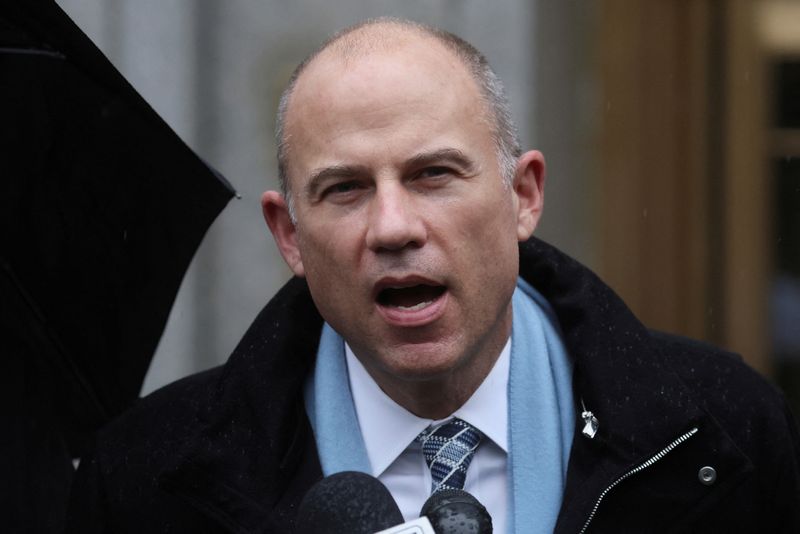On Tuesday, the U.S. Supreme Court firmly declined to consider celebrity lawyer Michael Avenatti’s request to overturn his 2022 conviction for identity theft. Avenatti, who misappropriated almost $300,000 in book proceeds allocated to porn star Stormy Daniels, his former client, faced a federal jury trial in Manhattan. Convicted of wire fraud and aggravated identity theft, Avenatti’s case has seen consistent setbacks, with the Supreme Court recently rejecting his appeal for a second time. The justices’ refusal illustrates the court’s close adherence to legal standards, particularly in light of Avenatti’s previous unsuccessful challenges.
Avenatti, now 53, received a four-year prison sentence characterized by the presiding judge as “brazen and egregious.” Embarking on a self-representation during his two-week trial, Avenatti’s appeal was spurred by a ruling from the 2nd U.S. Circuit Court of Appeals in which his conviction was upheld. His argument hinged on the assertion that a 2023 Supreme Court decision had narrowed the interpretation of the aggravated identity theft statute, thereby suggesting insufficient evidence to substantiate his guilt. However, the Supreme Court opted not to address these claims, signaling a lack of sympathy for his legal strategies.
The underlying case involved Daniels, whose real name is Stephanie Clifford, and her claims against Avenatti. During her testimony, she relayed how Avenatti misled her regarding advance payments from her publisher for her memoir, titled “Full Disclosure.” Avenatti had led Daniels to believe these funds had not been disbursed and further acted deceptively by forging her signature to divert the money for his own use. This misconduct played a crucial role in the jury’s verdict against him, highlighting a pattern of deceit that contributed to his legal troubles.
In addition to his identity theft conviction, Avenatti’s legal woes have compounded over time. Earlier in May, the Supreme Court refused to entertain an appeal related to a separate conviction wherein he was found guilty of defrauding a youth basketball coach and extorting the athletic apparel company Nike. That particular case resulted in a 2.5-year prison sentence for Avenatti, underscoring a troubling trend of legal mishaps that has drastically altered his once-prominent career as an attorney.
Avenatti’s difficulties extended further when, in 2022, he pleaded guilty in a California court to cheating four clients, which led to an additional 14 years of incarceration. As of now, he is serving his sentences in California, a stark contrast to the prominence he enjoyed when representing Daniels in high-profile litigation against former President Donald Trump. His role in advising Daniels regarding Trump gained widespread media attention, particularly as it spiraled into a significant political scandal involving alleged hush money payments.
Avenatti’s narrative intersects notably with broader political contexts, such as the legal challenges faced by Trump and the evolving dynamics of the upcoming presidential election, where Trump is set to run against Democratic Vice President Kamala Harris. Trump, like Avenatti, faced his own legal repercussions when he was convicted in May of falsifying business records related to payments made to Daniels. As such, the intertwining of their stories sheds light on the complexities and consequences faced in the realm of celebrity, law, and politics in America, emphasizing how quickly fortunes can shift from fame to legal trouble.

